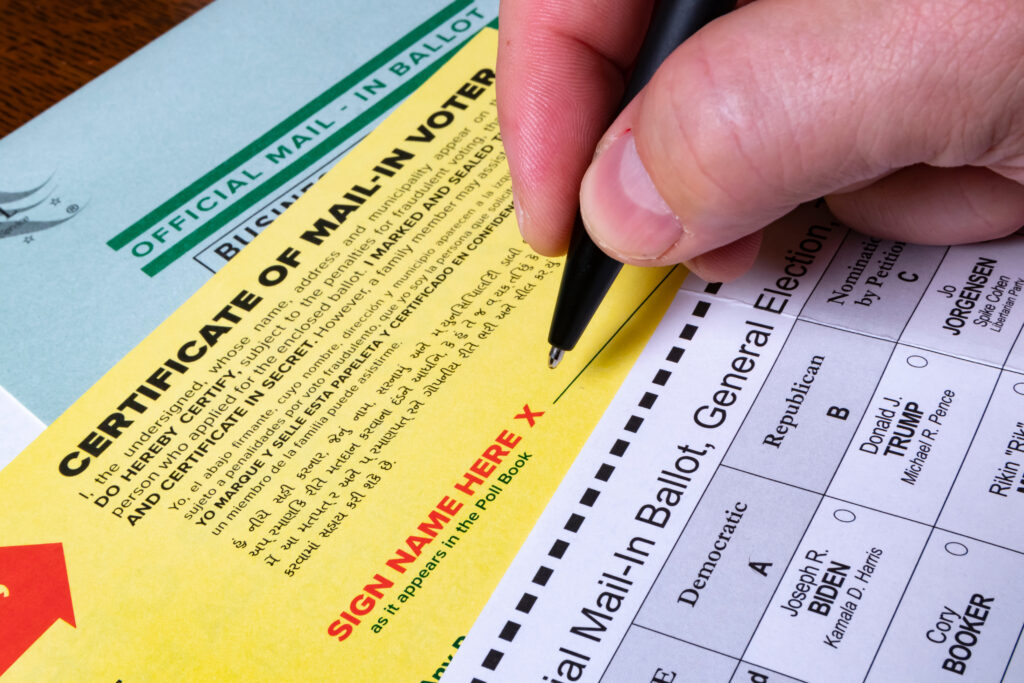Appeals Court Denies GOP Effort to Disenfranchise Pennsylvania Mail Voters

In a win for voters*, a federal appeals court last week rejected a right-wing effort to revive a Republican bid to block Pennsylvania from counting undated or wrongly dated mail-in ballots.
On Friday, a dissent by Judge Emil Bove, a former personal attorney for President Donald Trump, mocked the idea that the state’s date requirement might impose a burden on some voters.
A majority of judges in the Third Circuit voted Oct. 14 to deny the Republican National Committee’s (RNC) request to rehear the case, declaring that the burden on voters imposed by the date requirement “outweighed the Commonwealth’s interests in the orderly administration of elections, the solemnity of elections, and the prevention of election fraud.”
Get updates straight to your inbox — for free
Over 450,000 readers rely on our daily and weekly newsletters for the latest in voting, elections and democracy.
In August, a panel of the Third Circuit upheld a lower court ruling that requires Pennsylvania to count undated or wrongly dated mail-in ballots, finding that previous instructions to reject these ballots violated the First and 14th Amendments. The RNC and Pennsylvania then asked the full Third Circuit in September to rehear the case.
The original lawsuit stems from a 2022 challenge to Pennsylvania’s instructions to county boards of elections to not count mail-in ballots that were timely cast but either missing a date or containing the wrong date on the outer return envelopes.
Federal District Court Judge Susan Paradise Baxter, a first-term President Donald Trump appointee, ruled that the guidance imposed constitutionally impermissible burdens on the right to vote.
Bove, one of four judges who dissented from last week’s ruling, ridiculed the idea that the date requirement could wrongly disenfranchise some voters.
“At issue here is Pennsylvania’s requirement that voters write the date next to their signature on a declaration while transmitting a mail-in ballot,” Bove wrote. “For a voter with a functioning pen, sufficient ink, and average hand dexterity, this should take less than five seconds.”
*Correction: Due to a reporting error, this article originally reported that the ruling was issued October 24. In fact, it came on Oct. 14.